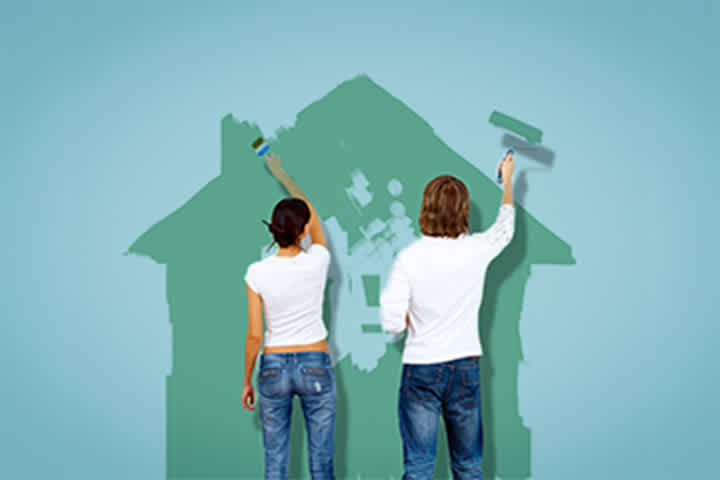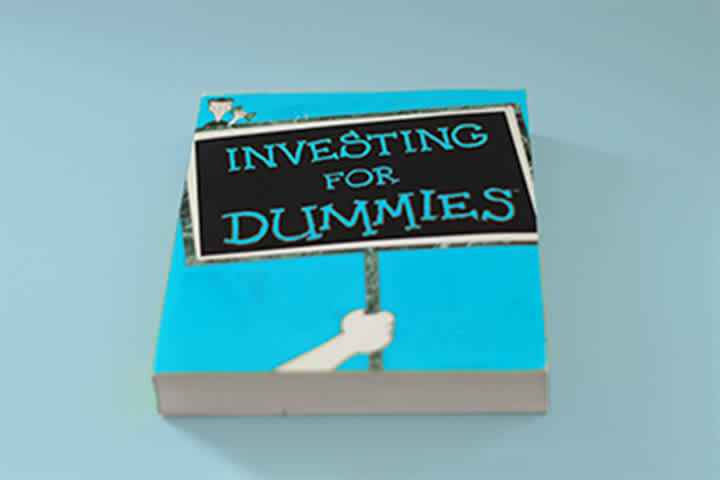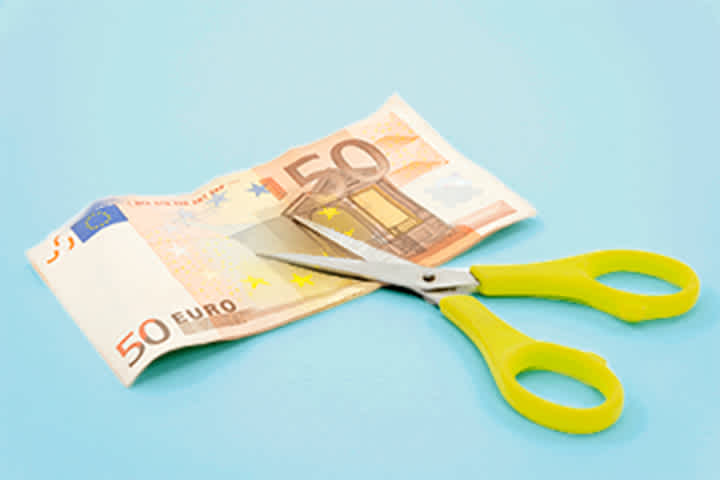10 tips for the novice property investor
Keytrade Bank
keytradebank.be
January 14, 2025
3 minutes to read
At the age of 23, Ivo Van Genechten started renting out his first parking space. He couldn't use it anymore because he was going blind. Soon he started renting out other parking spaces and garage boxes. He systematically built a property portfolio to realise his dream of leading a peaceful life in the sun. He reached his goal at the age of 54. If you want to invest in property, but don't know where to start, read Ivo's 10 tips to help you on your way.
1. Save and consume consciously
"Every euro you save is a euro you can invest. Open a separate savings account specifically for your property project. Set a fixed standing order of say 200 or 300 euros to automatically go into this account," says Ivo Van Genechten, Property Coach. “Your money will probably stay in this account for a while, so it may be a good idea to opt for an account with a higher loyalty premium.”
"If you plan to buy in property in 5 to 10 years’ time, consider first investing part of your property portfolio. You can set up a periodic investment plan just like a savings plan. Investments can yield a higher return, but you have to ensure sufficient diversification. A long-term horizon is important because stock market investments tend to fluctuate in the short term."
"Whether you save or invest, discipline is key. Set up a standing order, for example on the day your salary comes in."
2. Use leverage
"If you have 10 to 15% of the capital you need for your first property investment (don't forget the stamp duty and fees), use leverage by taking out a loan for the rest," Ivo says. "Leverage allows you to significantly increase the return on your own funds by using funds of a third party (bank). Suppose you achieve a 4% gross rental return after buying a 100,000 euro studio with money you saved. If you now borrow 90% of the purchase price at less than 4%, you will increase the return on your equity significantly. What’s more, you’ve only spent 10,000 euros of your own savings." "This allows you to start with a relatively small amount. Many beginners don't understand this or want to save up a large sum of money first. They think borrowing only makes the bank richer, but that is not the case. Borrowing helps you to grow faster and expand your portfolio faster. The sooner you make your first investment, the greater the rewards you will probably reap later."
3. Start small
Ivo himself started with a parking space, but starting with a small studio (18 square metres) is also a great option. “This type of property is quite affordable, especially on the Belgian coast,” Ivo says. "If you invest 10,000 euros in a new sliding door with HR glass, a modern kitchenette and a heat pump, you can make a simple place very attractive as a rental or holiday home. All in all, it will cost you around 70,000 to 80,000 euros. After 5 years, you can sell it and move on to a larger property, such as a 35-40 square metre studio, and so on."
4. Use time to your advantage
Time is one of your greatest allies in real estate. The sooner you start, the more you can benefit from value increases and rental income. “If you buy a studio at the age of 25, you can pay it off by the age of 40, even if you don't invest any more,” Ivo adds. "This will give you an income for the rest of your life. Bear in mind, however, that you may need to do some renovations every ten years."
"Using time to your advantage also means being patient. There are many properties (in need of renovation) for sale that you can add value to. If it you aren't successful today, maybe you will be next week. Of course, you can't wait forever, but you do need to take the time to explore the market."
5. Stand by your latest deal
After making a purchase, many beginners start having doubts about whether they made the right decision. "You may see a better offer a few weeks or months after your purchase. There will always be someone who would have been prepared to pay 20 euros more in rent. And there will always be someone who would have paid 5,000 euros more for the property you are selling. However, don't let that discourage you," he emphasises. “Rely on your calculations.”
6. Buy at least 14% below the market value
"The income from your property starts with getting good value for money. A golden rule is to always buy below the market value by at least 14%. Why 14%? It covers the stamp duty (generally 2% in Flanders and 12.5% in Brussels and Wallonia for a second home) and 2 to 3% for other expenses," Ivo explains. "Suppose you find a similar apartment a few months later that is 15-20% cheaper. In principle, you can then still sell your current property at market value and buy the cheaper one without any loss. That 14% therefore acts as a buffer in case you really want to go after a better deal."
What is market value? "The prices you see on property websites are always asking prices. During the pandemic, people often paid over the asking price, but today the actual sales prices are often equal to or slightly lower than the asking price. You can determine the market value by researching similar properties in the region. Look at recent sales prices, not just asking prices. Realo also provides good market value estimates."
Ivo usually buys 20-25% below the market value. “It’s not just luck. You don't find these opportunities on every street,” he says. He recommends focusing on properties that have been on the market for some time or on owners with an urgent reason to sell, such as a divorce, debt, or an inheritance. Properties in a poor condition and particularly properties that look really dirty but have good bones are also very interesting. These situations often give you an opportunity to buy at a cheaper price. And that’s never mentioned in the advert."
7. Rent out your property at the upper market limit
A higher rent calls for a strategy. “You can make your property stand out with small investments, such as a modern kitchen, a bicycle shed or a nice floor,” Ivo says. "Simply asking for a high rent doesn't work. If you want a higher rent, your property must be worth it. Make your property stand out from the rest."
8. Ensure a positive cash flow
A positive cash flow is important, especially for beginners. This means that your rental income is greater than your monthly costs, including the mortgage. “Even a small positive cash flow, such as 10 euros per month, makes you feel good and ensures financial stability,” Ivo smiles. “Over the years, your cash flow will get better and better, as the rent increases with inflation but your mortgage remains the same (for a fixed-interest loan).” "Some people say that it is difficult to generate a positive cash flow with interest rates of 3 to 4% (December 2024). It is true that things have become more difficult since 2023, but that's no excuse," he adds. "I’m 58 and I’m still taking out 25-year loans. My monthly payments are low, and the interest rate is now slightly higher, but that’s okay. I prefer to have low instalments over 25 years to keep my cash flow positive. If I sell after 10 years, I will repay the loan anyway, and then the 25 years no longer matter."
9. Sell above the market value
For this you can use the same approach as for renting: make your property unique. “If you spend 5,000 euros on property styling, you can ask 15,000 euros more,” Ivo says. "Also get acquainted with a selling technique like the SPIN method, which is based on asking questions. SPIN stands for Situation, Problem, Implication, and Need-Payoff. First, ask questions about the buyer's current situation to find out their needs. Then help them understand how your property can provide a solution to those needs. Consequently, the buyer will see more value in your property and will be prepared to pay more."
10. Take advantage of the snowball effect
The snowball effect is different from leverage and only starts when you own several properties. "Your initial investment will be worth more as you repay your loan and the value of the property increases. You can use this added value as security to borrow money to buy another property, so you can acquire more properties more quickly."
“The snowball effect is not just financial,” Ivo concludes. "Your experience and network will also grow, making it easier for you to understand how the property market works and how you can seek out opportunities. With more experience, it becomes easier to spot good deals, and your network can help you with advice and helpful contacts."


